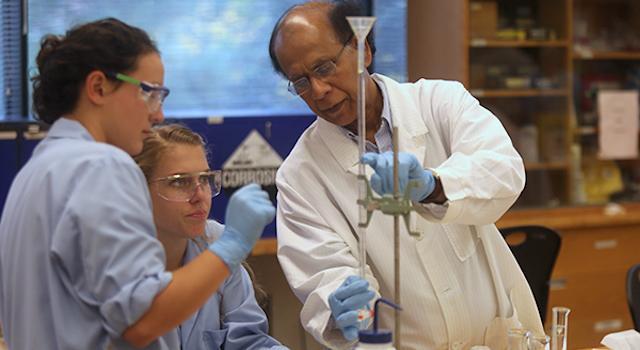Anthropology and Archaeology
Through courses in physical and cultural anthropology, students learn anthropological models and methodology, which provide the groundwork for the pursuit of informed, integrative independent research.
By combining coursework in the natural sciences and social sciences, anthropology students are exposed to field work and laboratory analysis.
Student Project Titles
- Four Days in the Valley: the Archaeology and Oral Histories of
Downtown Chaco - Turkce and Deutsch Places: Agency, Resistance, and Ethnographic Thickness in the Voices of Second Generation Turkish Women in Berlin, Germany
- Downtown Chicks: Youth Prostitution, Homelessness, and the Comodification of Sex in Las Vegas, Nevada
- Rhizomes, Sponges, and Icebergs: An Ethnography of the Unemployed Workers' Movement of La Matanza
- Health Disparity: Diabetes and African-Americans in Boston
- Breaking Bread: A Portuguese-American Baker Negotiates Work and Family
- What it Feels Like for a Girl: Black and Mixed-Race Women's Identity Construction
Sample First-Year Course
Sex, Death, and Teeth: Life Stories Recorded in Teeth
In this project-focused course we will research how teeth provide insights into health, nutrition, diet, and origins. Teeth develop in utero and during early life, and then are nearly inert. Because teeth grow somewhat like trees (teeth also have growth rings), one can use teeth as windows onto past lifetimes and geological times. We will learn how to read the record of nutrition and health from tooth size, shape, and chemistry. Examples of hands-on projects include gender differences in prenatal nutrition among the Maya, lead pollution in contemporary Egypt and Mexico, and the geographic origin of enslaved Africans. This course is particularly recommended for students with interests in anthropology, archaeology, public health, and nutrition.
Sample Courses at Hampshire
- The Anthropology of Human Rights
- Anthropology of Mass Media in Late Capitalism
- The Anthropology of Violence
- Bioethics/Post-Genomic Age
- Body, Guts, Bones
- Creating Families
- Critical Ethnography
- Culture, Mind, and Brain
- Culture, Religion and Environmentalism
- Disease, Famine, and War
- Europe and the World (1500-1800): Travelogues, Colonization, Ethnography
- Gifts, Sex, and Commodities
- Global Ethnography
- Intro to Ethnomusicology and Music Ethnography
- Music and Ritual
- Nutritional Anthropology
- Sex, Death, and Teeth: Life Stories Recorded in Teeth
- Socially Engaged Buddhism
- Storytelling, Mind, and Culture
- Who Owns Culture?
- Women and Politics in Africa
Through the Consortium
- The Anthropology of Food (AC)
- Anthropology of Museums (SC)
- Archaeology and Prehistory (UMass)
- Cultural Performances (MHC)
- Evolution and Culture (AC)
- History of Anthropological Theory (SC)
- Human Diversity (AC)
- Human Nature (UMass)
- Medical Anthropology (MHC)
- Research Methodology (UMass)
Facilities and Resources
Five College Collaboration
The study of anthropology is greatly enriched by the presence of a large and varied range of scholars across Five College consortium who meet regularly, share their research, and lecture in each other's classes.
As part of a wider collaborative effort to expand the opportunities for undergraduate study and field work in medical anthropology and related areas, the anthropologists helped to develop a Five College Certificate Program in Culture, Health, and Science.
A major collaboration is a day-long Five College symposium each year in which undergraduates present their research to the faculty and to their peers at all the campuses.
Field Studies
Through the University of Massachusetts Amherst's department of anthropology, Five College students are able to participate in local archaeological digs each summer or enroll in the field program in European studies. The field studies training program works on the principle of small group collaborative learning. Participants move through a three-semester course sequence as a group, sharing their ideas and experiences with each other. In this way, participants learn from each other and the faculty instructor who guides them through the process from beginning to end.
Participants are free to choose the research site and topic that most suits their interests. Students develop these ideas into full-fledged research projects—taking the project through the various stages of design, data collection, analysis, and report/publication. The idea is to experience the challenge of individual field research with the advantage of close guidance and support.
Five College Certificate Programs
Dependent upon individual academic focus, concentrators at Hampshire in anthropology or archaeology may also qualify for the Five College Certificate Programs in Culture, Health, and Science, Native American Studies, African Studies, or Latin American Studies.



